Families of Forsyth County
Atlanta History Center is uncovering and sharing the histories of the descendants of Forsyth County’s Black residents who were expelled in 1912.
As part of an initiative to continue research and bring awareness to the events of 1912, we aim to provide resources for descendants to explore and tell their family histories as conversations continue in Forsyth County and across the country on how to reconcile with the past.
The podcast 1912: The Forsyth County Expulsion and Its Aftermath tells the stories of four Black families from Forsyth County and the lasting impact of racial terror on generations of descendants.
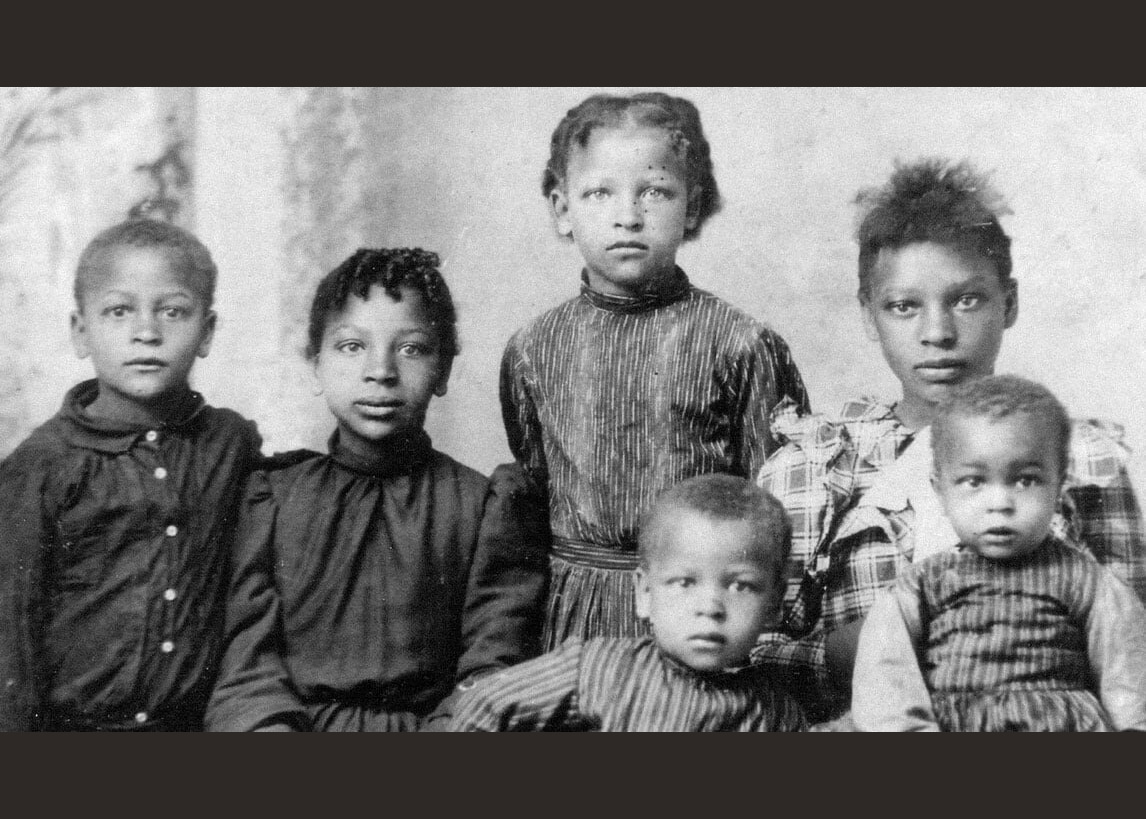
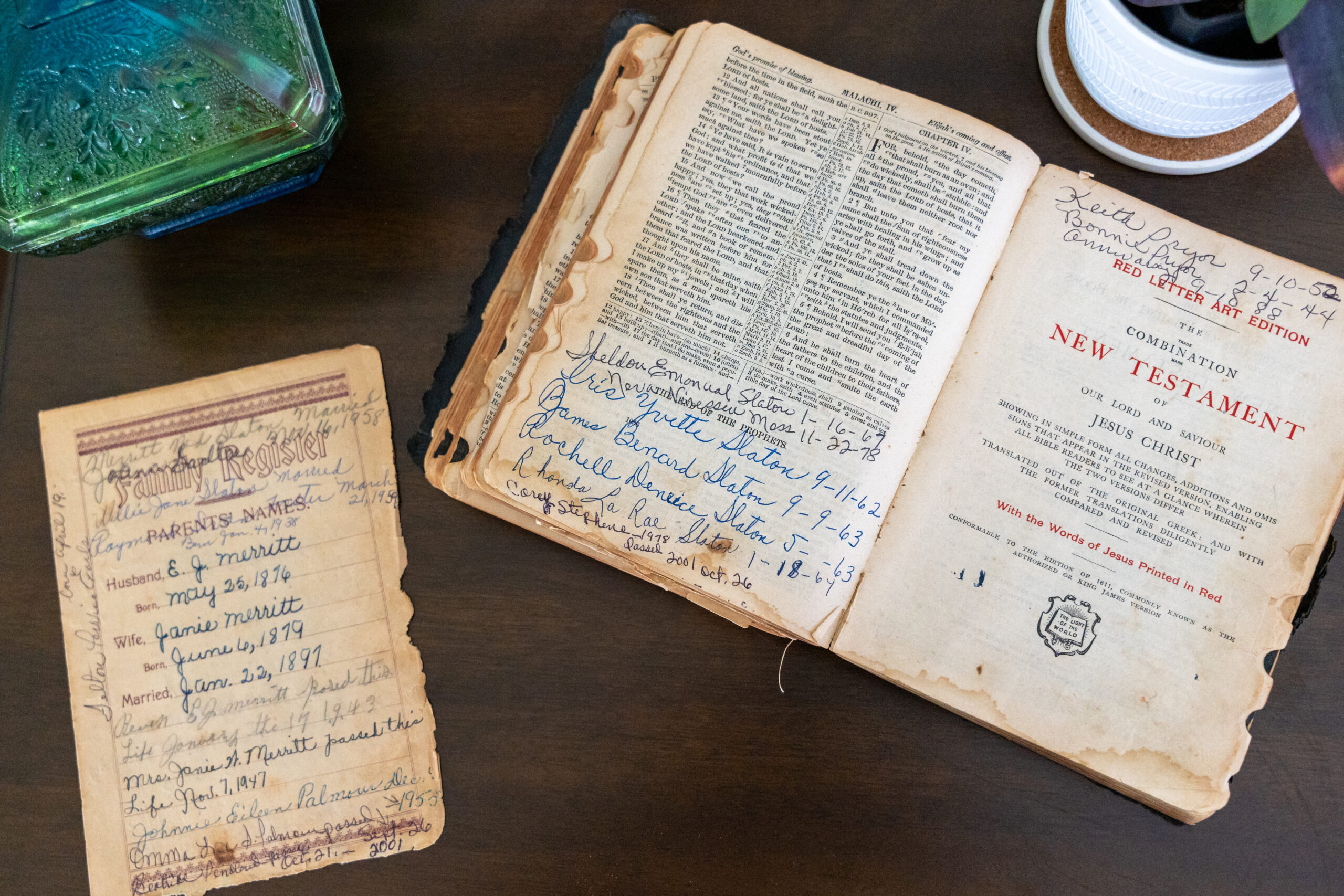
The Merritt Family
Listen to Candace Merritt Jones, granddaughter of Ed and Janie Merritt:
Transcript:
Candace Merritt Jones: My father’s name was George Edward Merritt. He was the son of James, Eddie James Merritt and Janie Merritt. I didn’t get a chance to know either of the grandparents. I wished I had got a chance to know them, but I didn’t.
As far as my dad talking about what happened. He just said that his family had to leave.
I started thinking about it more especially during the time when Oprah went to Forsyth County. That’s when I more or less wanted to know what happened to my ancestors. You know, they left there in this frenzy. What really happened to them?
Since I didn’t get to know my grandparents, and what I get to find out about them now, like, I can see their names on paper and imagine what they were like.I can’t wait to get to know more and get even more information I mean, it just fills my heart.
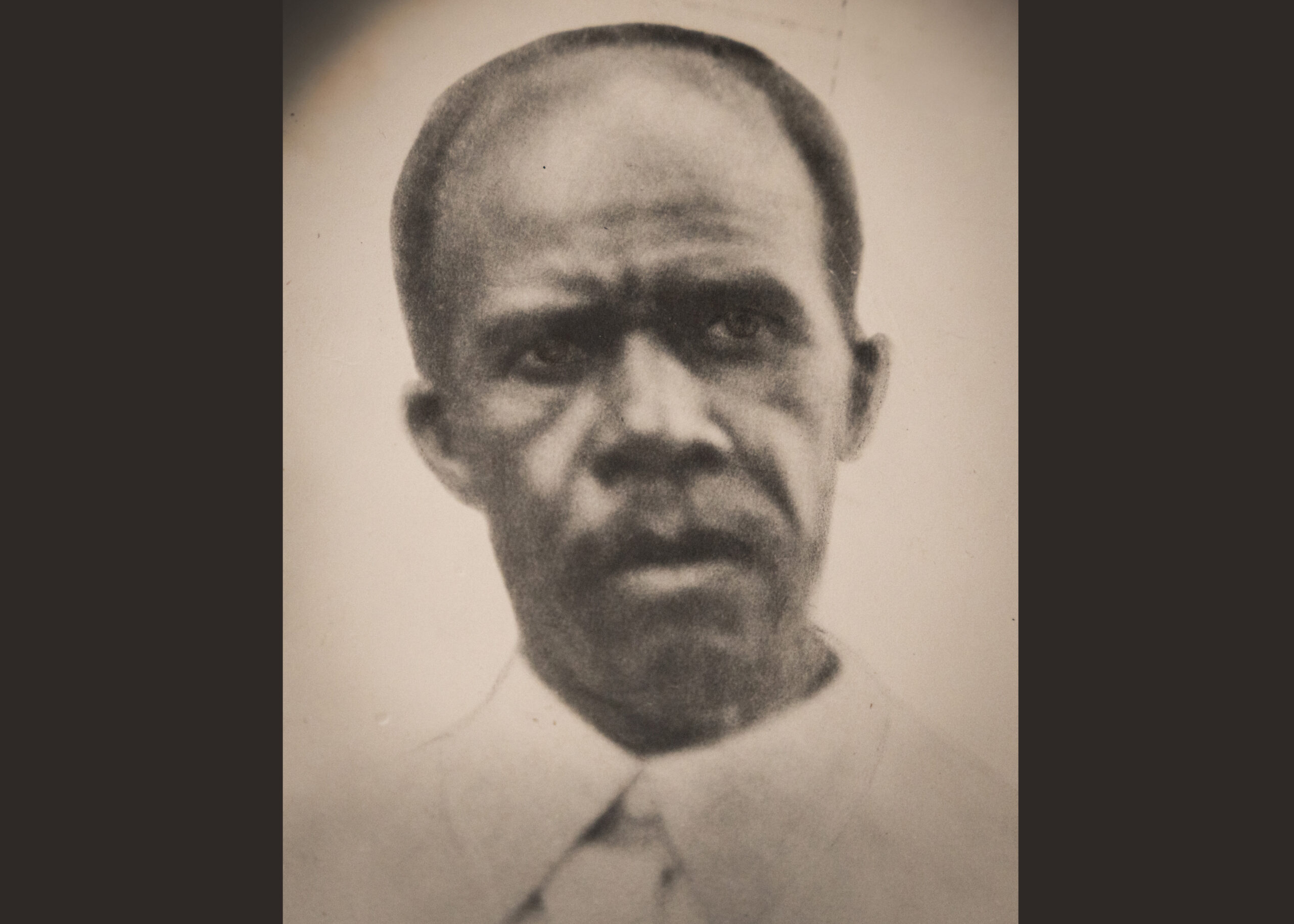
Edward James “Ed” Merritt, n.d. Courtesy of Betty Moss
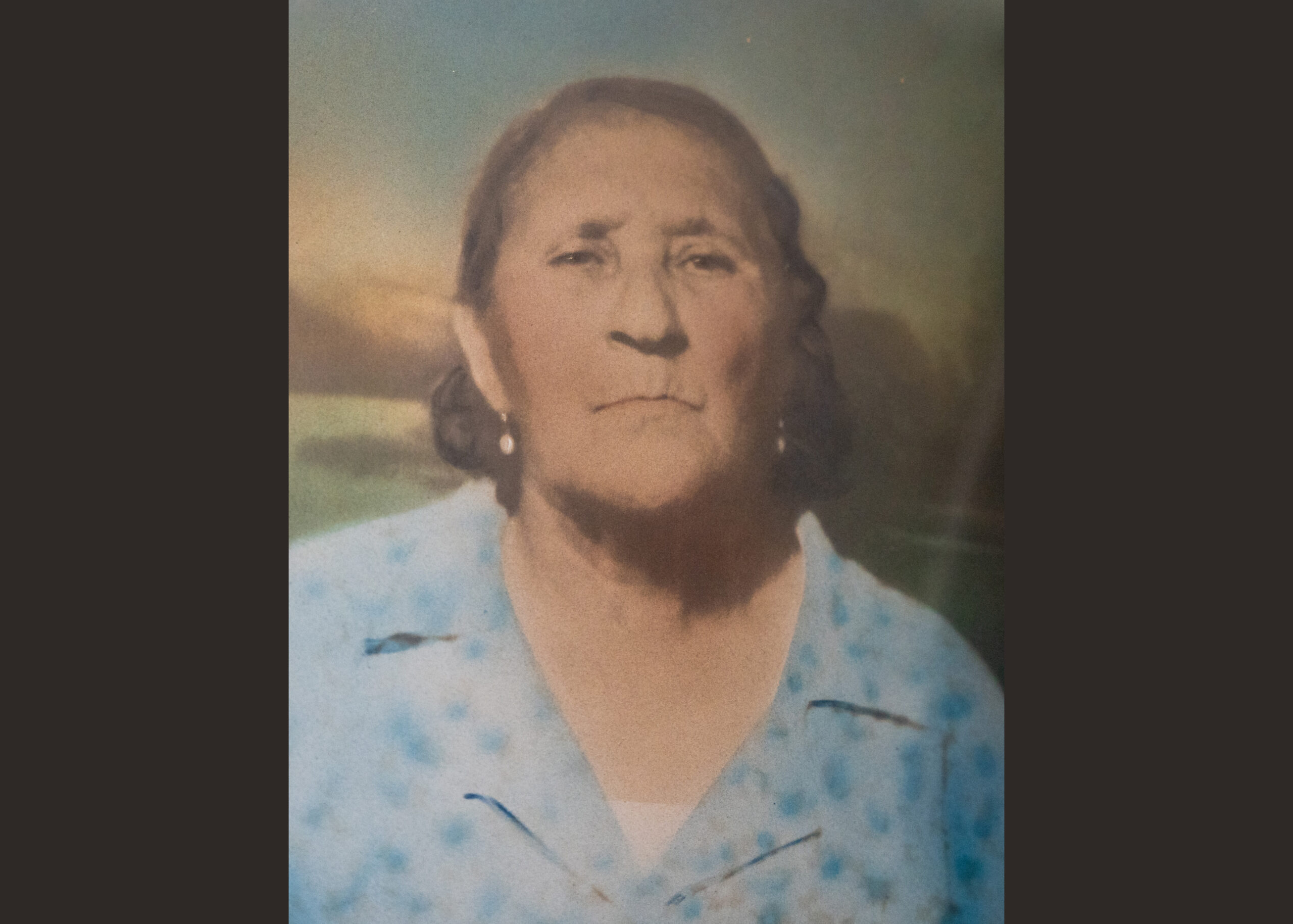
Jane “Janie” Merritt, n.d. Courtesy of Betty Moss
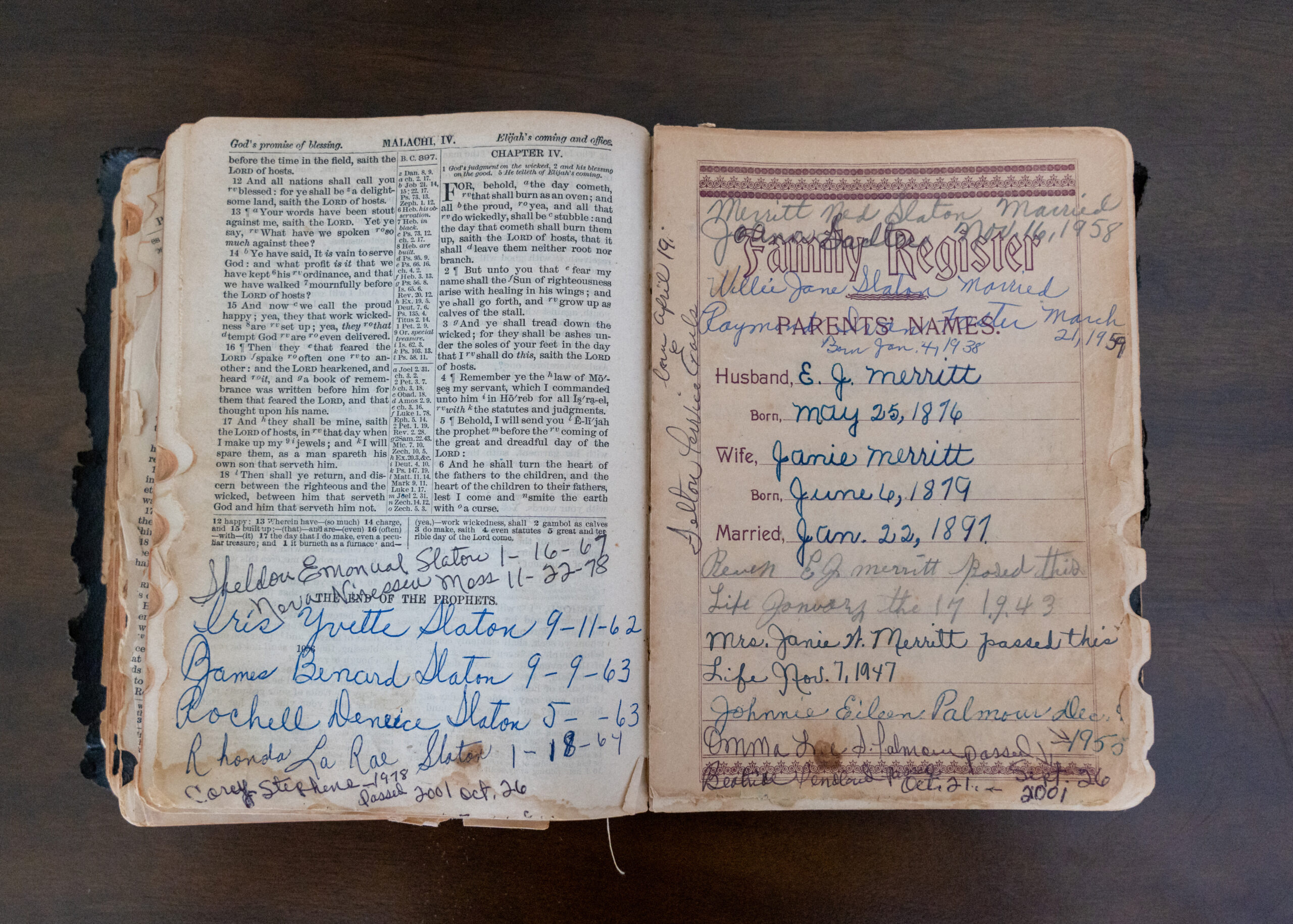
The family bible of Ed and Janie Merritt, filled in by Janie and other Merritt family members. The bible details their lives in Forsyth and Gwinnett County. Courtesy of Betty Moss
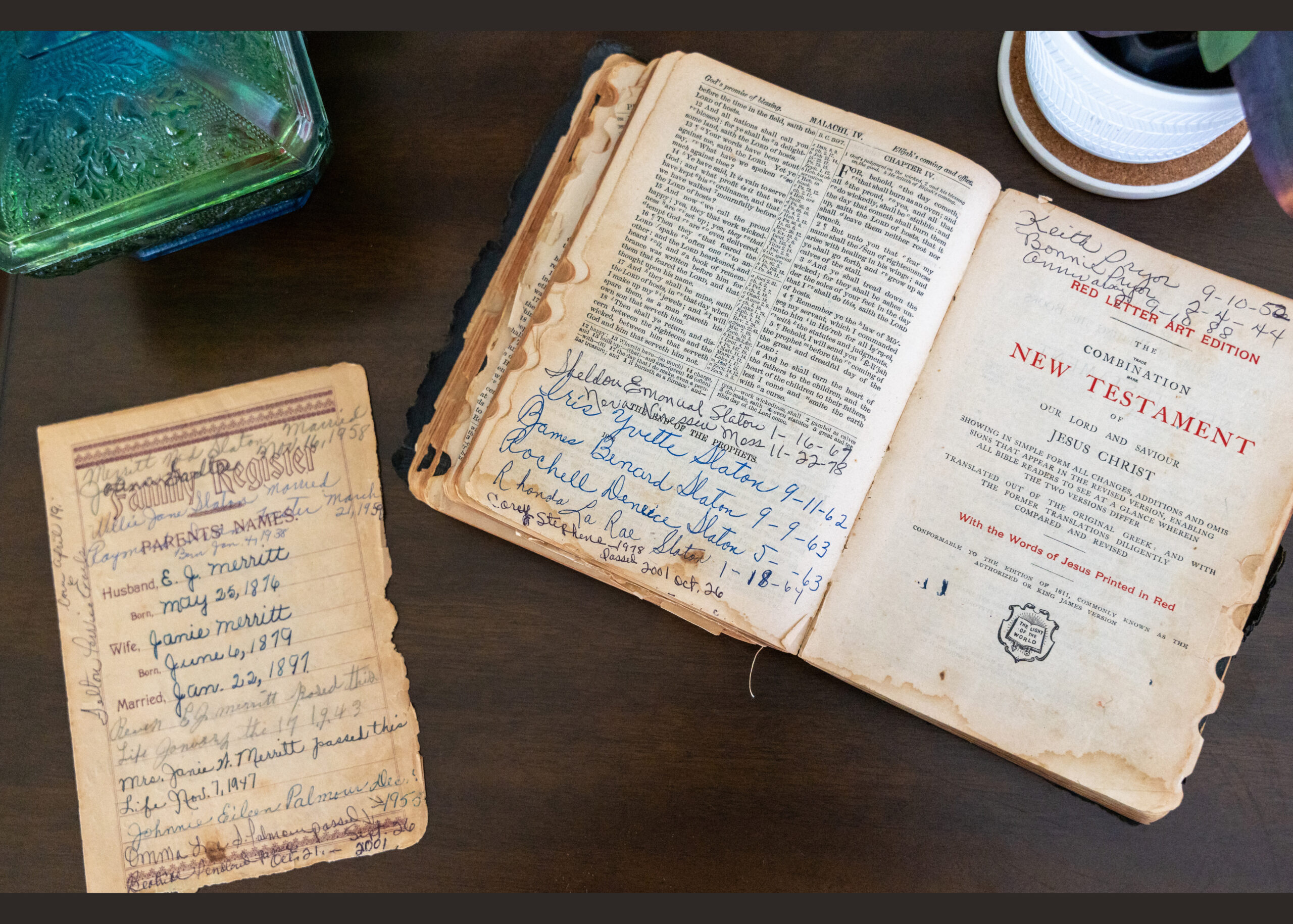
Deaths of the Merritt Family, including the son of Ed and Janie Merritt, Immon Merrit. Immon died in 1911, at five years old and only a year before Ed, Janie, and their remaining children would be forced to flee Forsyth County. Courtesy of Betty Moss
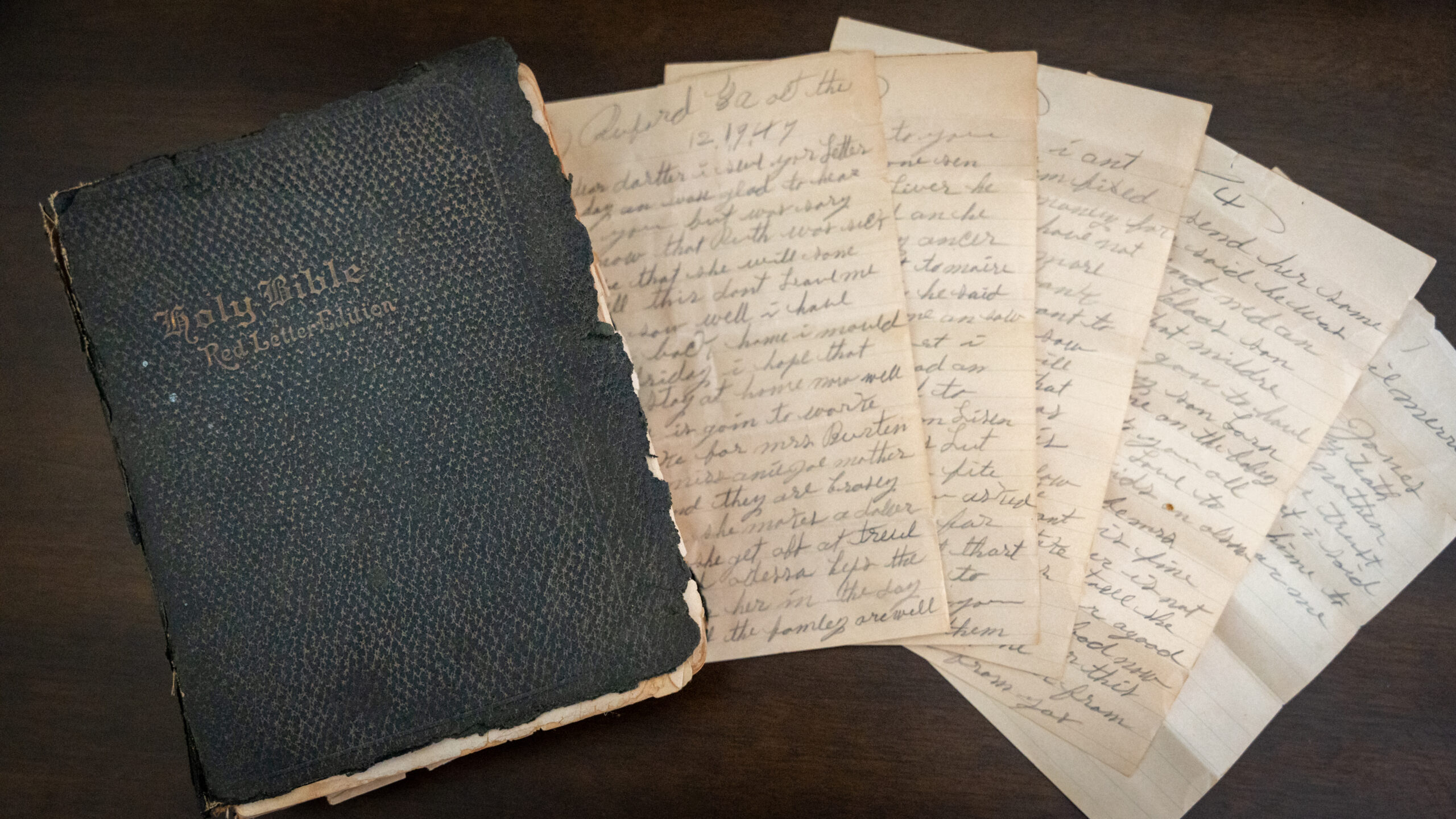
The family bible and a letter written by Janie Merritt to her daughter in October 1947. Janie writes that the only thing she wants for Christmas is for her daughter to pay to repair her glasses, as she doesn’t have much money to spare. She also writes about her declining health. Janie died less than a month later. Courtesy of Betty Moss
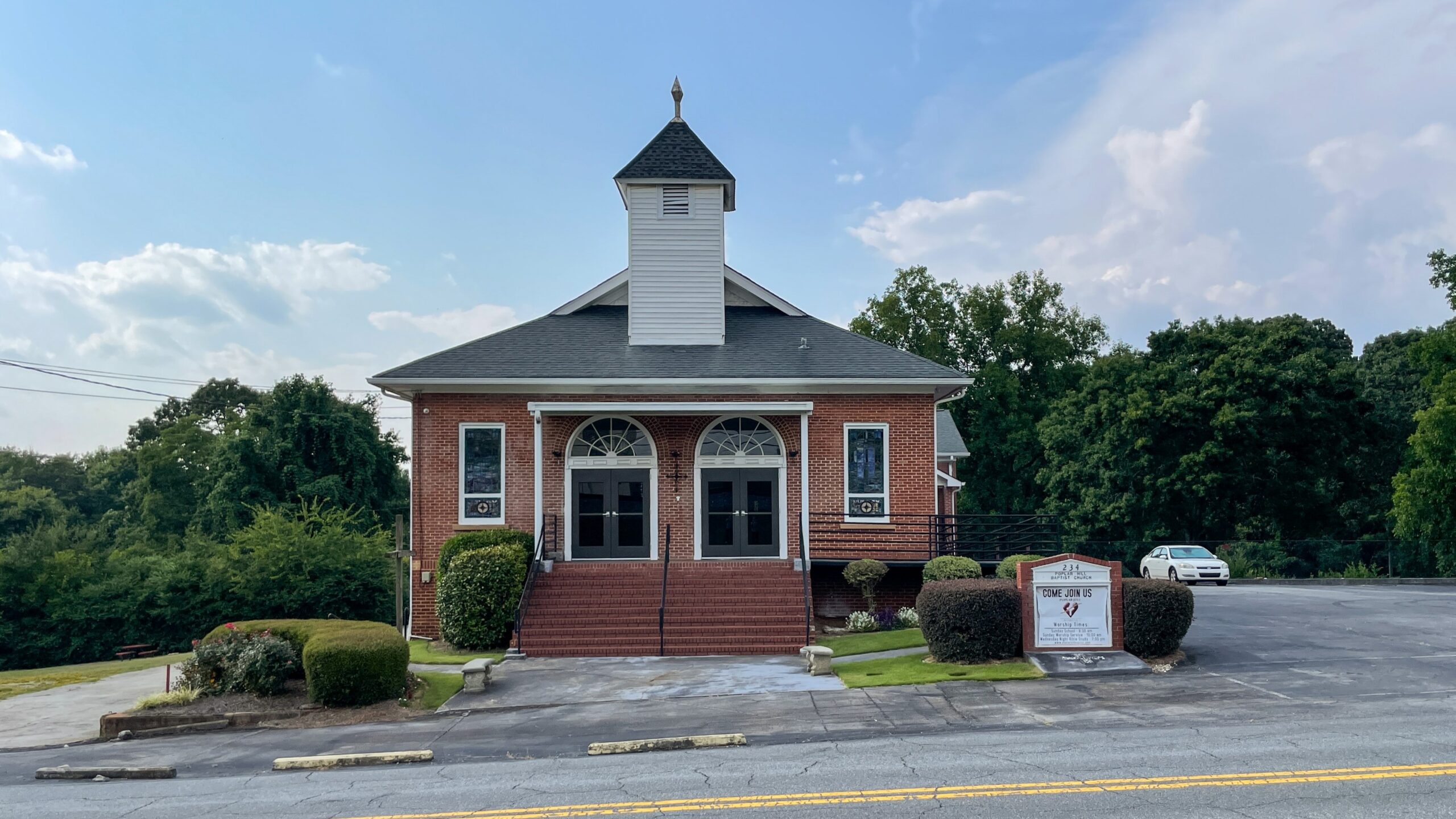
Poplar Hill Baptist Church in Buford, Georgia. Poplar Hill became a safe landing place for Black residents expelled from Forsyth County, 2023. Photographed by Juan Terra

Merritt Family Profile
Jane Woodliff and Ed Merritt’s roots in Forsyth County, Georgia, were marked by resilience and quiet strength. Little is known about their early life in Forsyth, but a family Bible reveals that they lost a child at a young age and took in a niece, raising her as their own. Their lives were forever changed by the racial violence that gripped Forsyth County in 1912, forcing many Black families to flee their homes.
The Merritt family’s escape from Forsyth is shrouded in mystery, with few stories surviving about their harrowing flight. However, we do know that Ed and Jane Merritt eventually found refuge in Gwinnett County, where they joined Poplar Hill Baptist Church. Ed Merritt, a man of faith and leadership, served as a reverend at the church and was laid to rest in a nearby cemetery. Merritt and his sons worked at Bona Allen Tannery in Buford, Georgia, one of the only places in Buford which hired African Americans. Among the few treasured items they left behind is a letter Jane wrote shortly before her death, offering a rare glimpse into their lives.
The children of Ed and Jane Merritt who survived the expulsion from Forsyth rarely spoke of the events they endured. One of their sons, George “Ed” Merritt, channeled his experiences into becoming a prominent civil rights figure in Gwinnett County. He made history as the first Black member of the local school board and was honored with a street named after him in Gwinnett. George also served as a deacon at Poplar Hill Baptist Church, continuing his father’s legacy of leadership and community service.
Poplar Hill Baptist Church served as a sanctuary for many former Forsyth residents, including the Merritts. It became a cornerstone of the community, providing spiritual support and a sense of belonging during turbulent times.
Today, Ed and Jane Merritt’s grandchildren grapple with the fragmented history of their family. Many have only recently begun to uncover their heritage, learning about their ancestors’ trials and triumphs through this process. They face the challenge of preserving this newfound knowledge and passing it on to younger generations, ensuring that the Merritt family’s story of strength and perseverance is not forgotten.
The Merritt family’s journey from Forsyth to Gwinnett County is a testament to their enduring spirit and commitment to community. Their legacy, marked by silent strength and significant contributions to civil rights, continues to inspire and remind us of the resilience of African American families in the face of adversity.